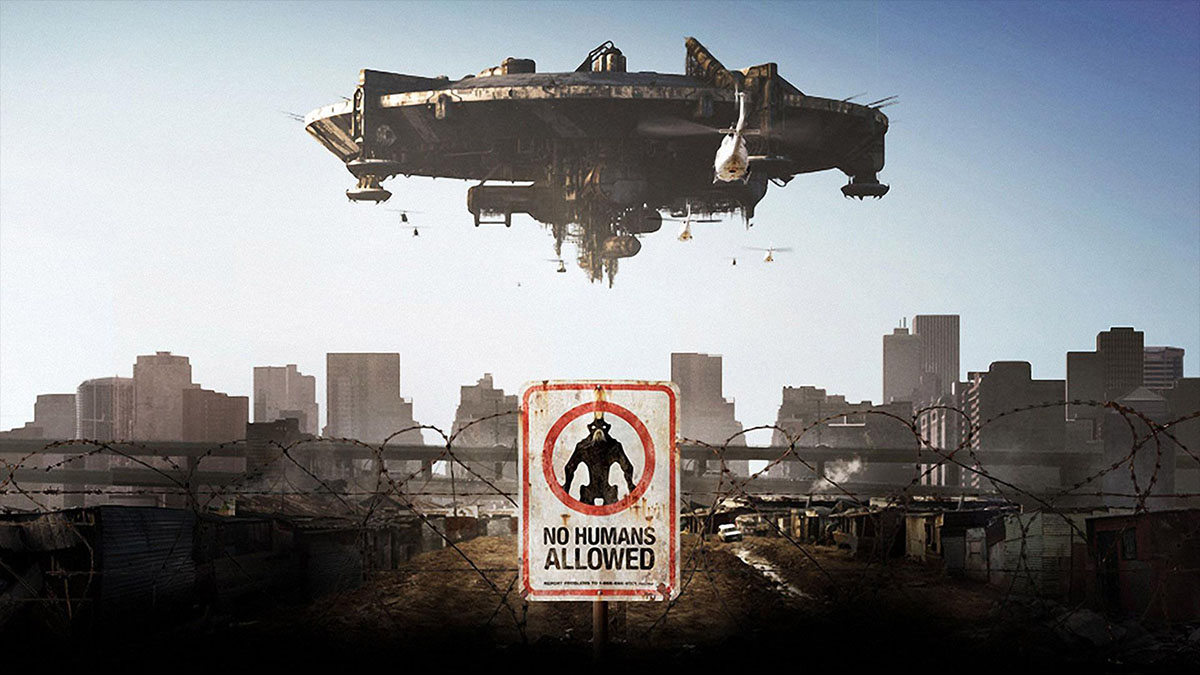from stranded victims to interstellar villains

When it comes to portraying aliens in a science fiction movie, we usually get a choice between evil overlords coming to dismantle our world and either enslave or exterminate humans, or small, placid creatures coming down from the skies to offer us peace, understanding and free rectal exams to the occasional abductee. But now there’s a film which casts extraterrestrials into a new and very unusual role. Hostages. In District 9, the aliens made a quick pit stop on Earth, but we won’t let them leave. At least not until they tell us how their guns and spaceships work. Instead of being victims or recipients of almost messianic help, we’re now the villains.
So far, this movie seems to be doing everything it can to get an original storyline from the old alien vs. human motif even if it does utilize some stereotypical overtones like an overzealous military and a human who falls in the morally ambiguous zone from which we can see both sides of the battle. But its setting is a slum in South Africa, the aliens are fighting for their freedom from a horde of armed humans, and it’s shot more like a gritty documentary than a special effects driven blitz of sound, fury and explosion that is a modern blockbuster. And so far, it looks like a creative, subtle effort. Obviously, I’ll be in line at the theater when it comes out and looking at whether how well this movie does at the box office will affect how we see aliens being cast in future films. I could also see potential blockbusters where proselytizing alien armadas are used to explore our relationship with religious traditions and what happens when two immovable forces meet.
Now, to be perfectly accurate, there have been plenty of sci-fi shows where aliens have much a more complex motivation than to exterminate us or save us with shiny extraterrestrial goodies. However, in my opinion, those supposedly alien creatures were entirely too human in their actions. After a few episodes of Babylon 5, I had a little mental game where I tried to identify the human culture that influenced the writers’ conception of what an extraterrestrial species’ history and customs were like. Even the falsely enigmatic Vorlons and Shadows were just authoritarian figures who thought their advanced technology gave them the right to do anything they got in their heads. Or wherever their thinking organs were housed. But that’s the interesting thing about sci-fi. It’s not so much a glimpse of the future as is it an exploration of our conflicts, views and attitudes in unusual settings to remove them from the everyday context with which we rationalize them. These aliens were so humanlike in their behavior not because they were aliens, but because they were archetypes of human ideas.





